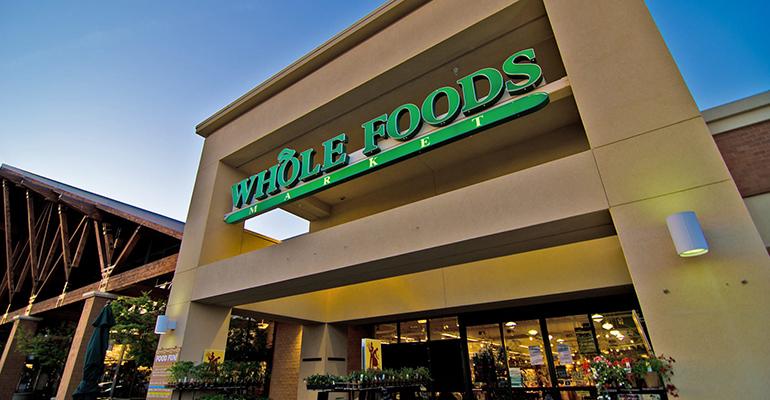Whole Foods Market has asked its suppliers reduce their prices and to prioritize keeping the retailer in-stock when supplies are limited, according to a report in the Wall Street Journal.
The report comes as the industry battles double-digit grocery price inflation and ongoing supply-chain challenges. Grocery-price inflation was up 11.8% in December, compared with a year ago, according to the Consumer Price Index released earlier this month.
As one of the higher-priced retailers in the grocery space, Whole Foods may be especially vulnerable as consumers look for bargains and divert more of their spending toward value retailers.
The retailer plans to focus on focus on promotions in the year ahead, and to create more shopping events to drive traffic, Whole Foods executives said at a December summit meeting with suppliers, according to the Wall Street Journal report. It also has been streamlining its merchandising teams and plans to invest in categories that have high growth potential, such as dairy.
Whole Foods could not be reached for comment by SN.
Like many retail grocery chains, Whole Foods has been absorbing some of the cost increases that vendors have implemented in the past year in an effort to minimize shelf-price inflation, as spokeswoman for Whole Foods was quoted as saying.
The company’s rate of price increases has been slower than the industry average, she said, and has even reduced prices on some items, including cereal, bread and sparking water.
The focus on reducing prices comes as Whole Foods’ parent company, Amazon, is raising prices for delivery orders under $150, and as the company appears to have stalled in its rollout of stand-alone Amazon Fresh grocery stores. Amazon is scheduled to report year-end earnings on Thursday.
Whole Foods’ moves also come as grocery retailers continue to report that their suppliers are raising prices on some products, despite some signs that inflation overall has been easing.
In its third-quarter earnings call with analysts Kroger Co. said some fresh categories, such as chicken, were beginning to see a moderation in prices, while CPG products have been a mixed bag, as some companies continue to implement price increases.
United Natural Foods Inc., which supplies Whole Foods and other retailers, said in its recent first-quarter call that it expects inflation to moderate during the coming months but that it remains largely uncertain about ongoing price increases. The company said inflation was up about 10% in its fiscal first quarter, while unit sales were down 3%.
“We’re continuing to work really hard to make sure that our customers are as competitive as they possibly can be,” said Sandy Douglas, CEO of UNIFI, during the call.





